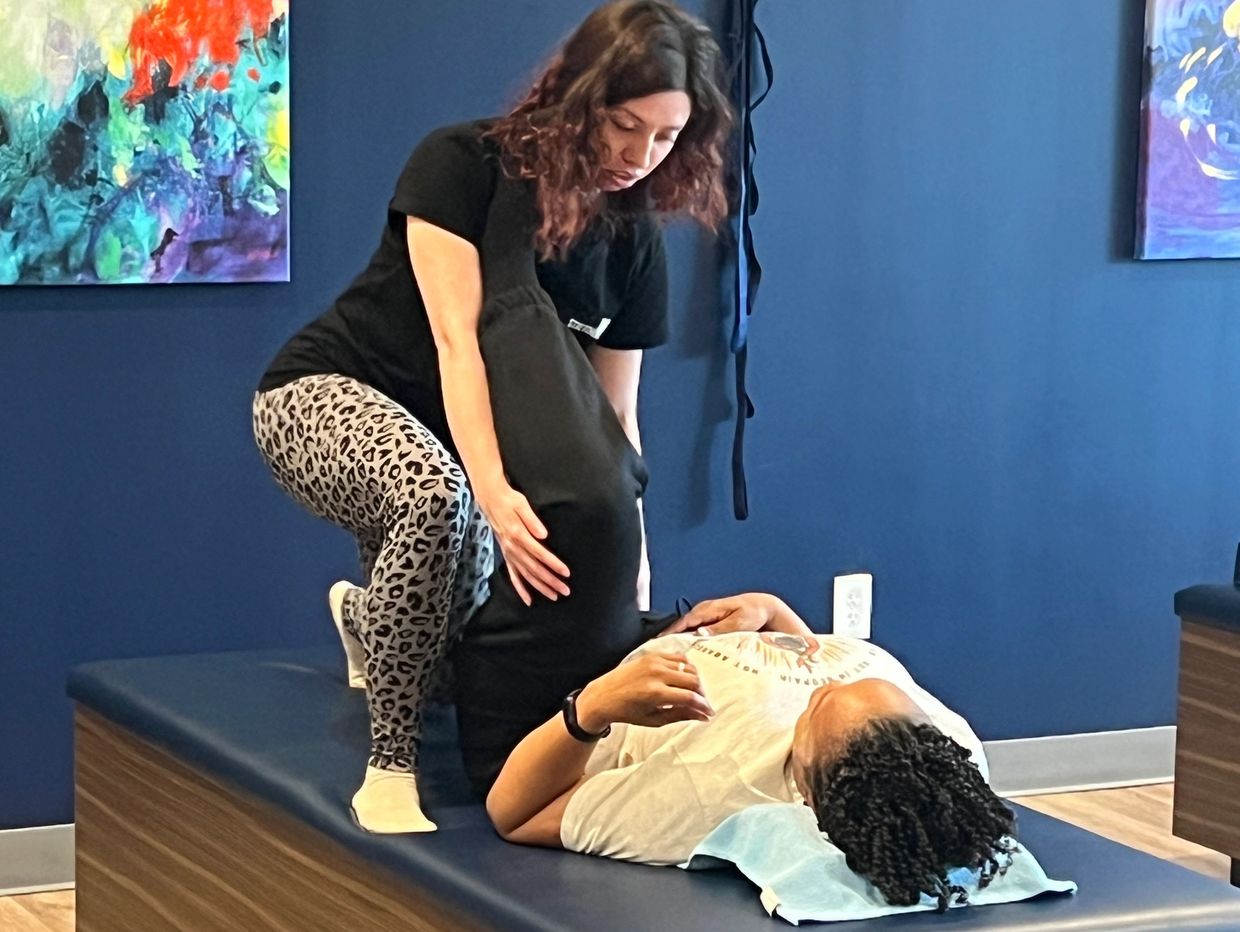Signed in as:
filler@godaddy.com
Signed in as:
filler@godaddy.com

RESI.fit’s mobile 1-on-1 assisted stretching sessions bring customized bodywork directly to you, combining advanced recovery and mobility techniques to help you move and feel your best. Each session is rooted in Proprioceptive Neuromuscular Facilitation (PNF) to enhance flexibility and neuromuscular control, while incorporating myofascial release, trigger point therapy, and percussion tools to relieve tension and restore balance throughout the body. Depending on the client’s needs and preferences, additional bodywork techniques may be integrated to support relaxation, recovery, and performance. This personalized approach allows every session to meet you exactly where you are—whether your goal is to improve mobility, reduce pain, enhance athletic performance, or simply move with more ease and awareness.

Proprioceptive Neuromuscular Facilitation (PNF) stretching is an advanced technique that combines gentle muscle contractions with assisted stretching to enhance flexibility, mobility, and neuromuscular control. By engaging both the muscular and nervous systems, PNF helps retrain the body to move with greater efficiency and less pain.
For athletes, it improves range of motion, power, coordination, and recovery while reducing injury risk. For those recovering from injuries, it restores functional movement, decreases scar tissue restriction, and helps correct compensations that lead to chronic pain.
Older adults benefit through improved mobility, balance, and circulation, while clients with arthritis or joint replacements experience reduced stiffness, safer joint movement, and enhanced muscle support for longevity and comfort. Across all populations, PNF stretching promotes flexibility, stability, body awareness, and freedom of movement—helping every client move, feel, and perform at their best.

After a PNF stretching session, clients can expect to feel looser, lighter, and more mobile, often noticing an immediate increase in flexibility and freedom of movement. Because PNF targets both the muscles and nervous system, it’s common to experience mild Delayed Onset Muscle Soreness (DOMS) within 24–48 hours after the session—similar to the soreness felt after a strength workout. This is a normal response as the body adapts to new ranges of motion and improved neuromuscular activation.
Clients are encouraged to hydrate thoroughly after their stretch to help flush out metabolic byproducts, support muscle recovery, and maintain tissue elasticity. Gentle movement, light walking, and mindful breathing can also enhance circulation and reduce post-session stiffness. Over time, consistent PNF stretching leads to lasting improvements in flexibility, posture, and overall movement quality, helping clients move more efficiently and with less discomfort in daily life or athletic performance.

I will be running the Viper 100 Miler Ultra Marathon to celebrate my 29th birthday. Take the pledge and donate the amount of choice per mile that I complete. All funds used to open my gym.
We use cookies to analyze website traffic and optimize your website experience. By accepting our use of cookies, your data will be aggregated with all other user data.